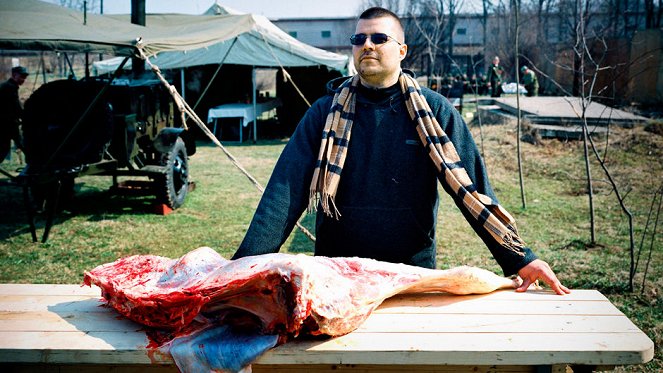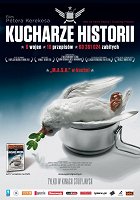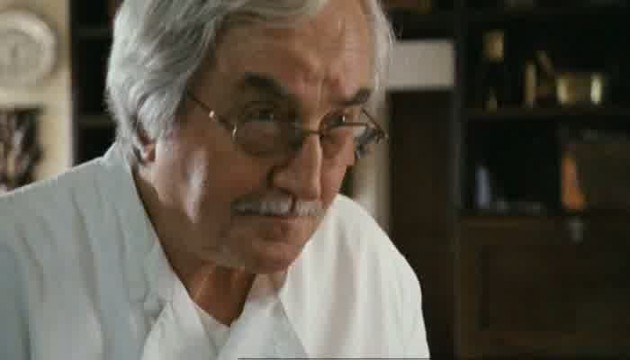Reżyseria:
Peter KerekesScenariusz:
Peter KerekesZdjęcia:
Martin KollárMuzyka:
Marek PiačekOpisy(1)
Bohaterami filmu Kucharze historii są wojskowi kucharze – dla nich nie ma raczej miejsca w podręcznikach historii. Okazuje się, że kuchnie polowe odgrywają w czasie wojen nie mniejszą rolę niż czołgi i karabiny, a zaspokajanie apetytów żołnierzy może mieć przemożny wpływ na losy świata. Bo jak mówi jedna z bohaterek filmu: – Dobrze najedzeni żołnierze wysadzają innych w powietrze o wiele lepiej niż zwykle. (Against Gravity)
(więcej)Materiały wideo (1)
Recenzje (1)
An unconventional view of war and the army through the perspective of cooks and their field kitchens. Co-production and a decent budget allowed for a journey through various countries and historical periods, so the audience has the opportunity to confront the views of World War II veterans, through the Algerian war, and up to the present day. This way, we can understand certain contexts that escape us during a casual glance at news about the conflict in Chechnya or the Balkans. The Serbian cook brings a smile with the remark "We cooked against the Croats," while during the confession of the Croatian cook, I understood why I passed burnt Serbian villages during my journey through Croatia. During the confession of the Russian cook, we will understand how supply in the Russian Federal Army works - or rather doesn't work - and why units of the Russian army have to resort to looting. The German cook on the submarine, in addition to describing how he cooks for his colleagues in a miniature kitchen, manages to depict how he was the only one able to save himself when his ship sank. It is all presented with a certain ironic exaggeration, and the interviews are complemented by military recipes such as shashlik for one hundred thousand Soviet occupiers or bread for eighteen million German soldiers on the front lines of World War II. We also get a glimpse into the kitchen of Yugoslav leader Tito and can admire a charming female body adorned with cheeses and cured meats as a feast for the international elite. Overall impression: 70%. Do you know what would happen if all army cooks refused to cook? How does one of them respond to this question? Nothing, they would just have to leave the safety of their kitchen and go to the front lines...
()
Galeria (10)
Photo © Mischief Films


